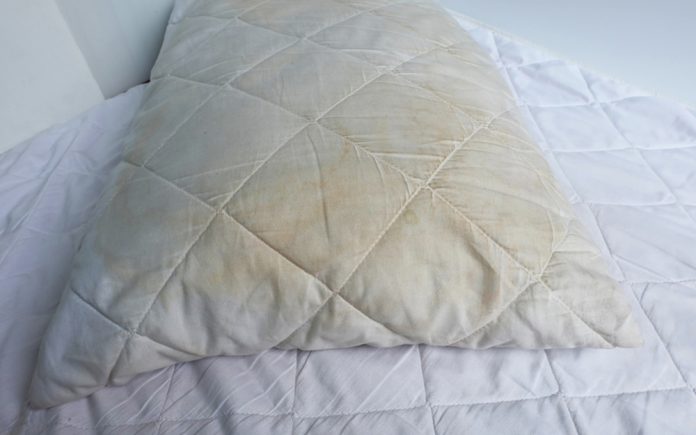Clean sheets? Clean. Clean the comforter? Even if they don’t look dirty to you, pillows, like mattresses, can accumulate body oils, saliva, face cream and dust mites over time, so they need to be washed regularly. So it’s best to throw them in the washer and dryer (yes, many pillows can go right in, but we’ll also give you some tips on how to hand-clean pillows that aren’t machine washable).
The first thing to keep in mind, according to Mike Roberts, general manager of WaveMAX Laundry, is to read the pillow’s label. “In general, polyester, down or feather pillows are machine washable, but not memory foam or latex pillows,” he explains. As for how often to wash pillows, it’s a matter of personal preference, but Roberts recommends washing at least twice a year.
Whether you’re spring cleaning or doing everyday household chores, with green cleaning products or not, read our tips on how to wash your pillow and leave it as fresh as your clean sheets (ahhh, clean sheets!). Cleaning your pillows will also help them last longer.

How to wash pillows in the washing machine
Make sure your washing machine is large enough.
If your washer is big enough, you can wash small pillows in it. But if you have queen or king-sized pillows, head to the laundromat to use their extra-large front-loading washers. “What cleans is not the water, but the tumbling motion of the items inside the washer,” Roberts says. “If you put pillows in the washer, they get wet but they don’t get turned over.”
Use the gentle cycle.
Too much agitation may break apart the fill.
Use cold or warm water.
Avoid hot water, which can break down the filament in your pillows.
Don’t use too much detergent—and skip the softener.
Reduce the amount of laundry detergent you usually use; say, ¼ capful if you use one full cap during regular loads (too much is harder to rinse out). Don’t use fabric softener, which can collect on pillows and cause a sheen that attracts more dirt and oils.
Rinse well.
If possible, choose a second or deep rinse option to completely flush out any residues.
Now time to dry.
Place the pillows in the dryer on low heat. Add a couple of dryer balls or clean tennis balls to prevent the filling from clumping. Down may take longer to dry, which is normal, says Roberts. A dryer sheet is fine to use to reduce static. And triple-check to ensure pillows are totally dry (so they don’t get mildew!) before making the bed.
More Pillow Tips
Clean pillows by hand if you can’t use a washing machine.
If your pillow’s label can’t be found, you can always wash it the old-fashioned way too. Wait for a sunny day, and take the pillows outside to beat them with a clean broom handle (or rug paddle if you have one like your great-grandmother’s!). Then let them air out outdoors for a few hours. For foam pillows, you can pull out your vacuum and use the upholstery attachment brush instead.
Use pillow protectors.
Cover pillows with pillow protectors before you put on pillowcases. Then wash these every week when you wash your sheets.
Fluff daily.
In between washes, fluff up your pillows when you make the bed each day. This helps keep them plumped and redistributes the filling to restore their shape, says Roberts.
Keep extra pillows on hand.
If you find a pillow you love, buy a few extra, suggests Roberts. That way, when your favorite doesn’t support your head and neck like it used to, you can replace it with the same type. Plus, it’s always nice to have extra pillows handy for overnight guests.
Know when to say goodbye to your pillow.
If your pillow is lumpy and flat, it’s probably time to part ways. Ditto if the pillowcase itself is stained and yellowed. Old pillows also can accumulate allergens such as dust mites and pet dander, so go ahead and treat yourself to a new pillow every year or so (or as needed).










